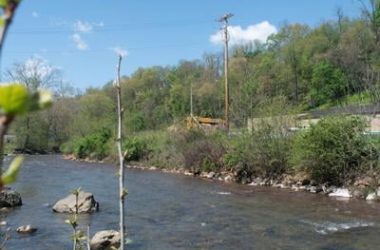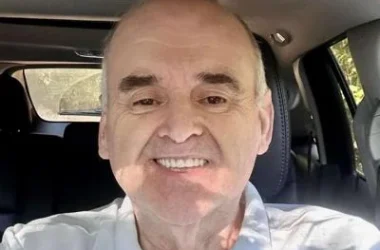By ERIC EYRE
Charleston Gazette-Mail
CHARLESTON, W.Va. — Kellyanne Conway, special counsel to President Donald Trump, and U.S. Health and Human Services Secretary Tom Price stopped at Fire Station No. 2 on Charleston’s West Side Tuesday afternoon as part of a “listening tour” that aims to gather solutions to the nation’s opioid drug crisis.

(Photo by Kenny Kemp)
There, firefighters and paramedics told stories about heroin addicts who overdose three times a day, about women six-months pregnant who overdose and die, about people brought back to life by overdose-reversing drugs only to refuse referrals to drug treatment programs.
“It’s mentally stressing to our guys to see this day in and day out,” said Lt. David Hodges, emergency medical services coordinator with the Charleston Fire Department. “A lot of people wake up [after overdosing], and they leave. We can’t get them to treatment facilities.”
Price said he’s searching for solutions to problems just like that.
“We’ve got them here. We just saved their life, and then you put them out on the sidewalk, and they do it again,” Price said. “We’ve got a huge void there that we have to fill. We’ve got to be able to address that.”
Before coming to Charleston, Price and Conway stopped Tuesday morning in Michigan. Today, they head to Maine and New Hampshire. New Hampshire had the sharpest rise in drug overdose deaths last year.
During their Charleston visit, Price and Conway reasserted that Trump is committed to fighting the opioid epidemic. They noted that the president has established an opioid addiction commission headed by New Jersey Gov. Chris Christie. The panel plans to deliver a report by the end of the year.
“This isn’t a commission that’s going on for five years,” Price said. “We’re losing people every single day across the nation, so we don’t have time to wait.”
No state has been hit harder by the opioid epidemic than West Virginia. More than 860 residents fatally overdosed on drugs in 2016. That’s a record number. The bulk of overdoses involved opioids — fentanyl, heroin and prescription painkillers.
“If this were any other disease, we’d have all the resources come to bear to figure out what the infection is, how did it get into our county and what are we going to do about it,” Price said. “This is a public health issue. This isn’t a criminal justice issue.”
“This will not be solved in Washington, D.C.,” Conway added. “This is a nonpartisan issue with a bipartisan solution. We recognize at the White House that no state has been spared and no demographic has been untouched in what has become a full-on, nationwide epidemic.”
Asked about drug treatment options, Price touted faith-based programs while showing less support for medication-assisted programs in which addicts are weaned off heroin with other opioids like Suboxone and methadone.
“If we’re just substituting one opioid for another, we’re not moving the dial much,” he said. “Folks need to be cured so they can be productive members of society and realize their dreams.”
Earlier Tuesday, Price met behind closed doors at the state Capitol with public health officials, doctors, lawmakers, recovering addicts and families who lost loved ones to opioid overdoses. State officials said they asked that the meeting be open to the public, but Trump administration aides insisted that the discussion remain private.
Price called the rising overdose death toll “unacceptable.”
“We’re here in West Virginia to learn the stories you have learned, sometimes in very painful ways, which will be emblazoned on our heart as we move forward to bring about solutions,” Price said.
See more from the Charleston Gazette-Mail





